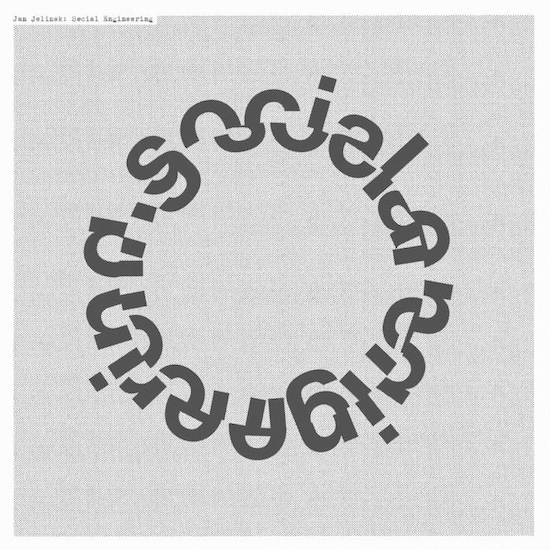If you’ve got an email address, you’ll have seen them before. ‘Your computer has alerted us that it is infected with virus and spyware!’; ‘Looking for kidney donor anywhere in the world’; ‘You have a donation of 3,500,000 Euros from Scott Godfrey!’. Delete; delete; open, seduced by curiosity – then delete.
The above examples are also all lifted from Social Engineering, Berlin-based producer Jan Jelinek’s new album. Though the formal expectations of an ‘album’, as Jelinek is calling it, might be misleading: across thirteen tracks and thirty-four minutes – seems regular, right? – there isn’t a single beat or acoustic instrument; there’s scarcely even a melodic sequence. Each track presents extracts of phishing emails, read to us by speech synthesis programmes in different forms and tones over sparse soundscapes. Originally produced as a radio work for Südwestrundfunk, it’s perhaps easier then to think of Social Engineering as a sound installation, crafting aurally an inherently deceptive world, and the deeper cruelty in our society that this ambient threat in online life reveals.
Whispers emerge from a rising drone in ‘Sad self-optimisation’, saying “Find out more” in harmonised, female-sounding voices that modulate up and down above humming bass, like sirens on the rocks. “We know you hate the extra pounds”, a subsequent male voice insists to convince us of revelatory diet supplements, as we begin to discern a repetition of two luscious shifting chords. In ‘Medical frivolities’, a growing buzz is occasionally interrupted: “Sell your one kidney”, a jovial voice says. The buzz grows more still, then cuts – flatlines – in a sharp beep. In ‘A mystery wants to be disclosed’, a voice tells us: “He was your countryman and had something in common with you”, as if arousing a deep longing or loneliness to be resolved. A blustery storm of thin, white noise crescendos, cuts out, then out bursts a dislocating soundscape of atonal bloops and flanging organ-like swells – all while a chorus of speakers ask us to find more details in an attached PDF. How can any of this resemble anything like the utopian ideas of the internet at its genesis, as a playground, a clubhouse, a forum of possibility? And yet there’s also such textural depth and detail, sonic tension and release throughout, that this musical uncanny valley begins to feel pleasurable, even beautiful.
Jelinek first rose to prominence with Loop-Finding-Jazz-Records (2001), a kind of anti-house record whose radicalism was to invert the priorities of electronic dance music: crackling details and sinewy textures were mixed to the fore; metronomic percussion and cast-mould melody to the back, held hypnotically distant. Whether by design or circumstance, Loop-Finding saw into the future: its muffled, midtempo aesthetic would be everywhere by the next decade – from influencer-grey cafes to YouTube study streams – as identity-less content at our service. Social Engineering emerges from this very ‘filterworld’, as writer Kyle Chayka calls it in his recent book; it’s an album enacting the streamlining of life via algorithm-based ordinance. Phishing today, after all, is only distantly connected to people who don’t so much as do it than initiate it: the recent acceleration and democratisation of sophisticated LLM tools has made the things we see, read and hear online even harder to trust, and even more populous.
Jelinek’s album is itself a trust exercise: what is lifted and what is invented by Jelinek, we wonder. It’s also a challenge to any aesthetic rules of popular music, by crafting something dehumanised and fundamentally deceptive and yet still managing to rouse feeling in the listener. For a second, I almost fell for it.


